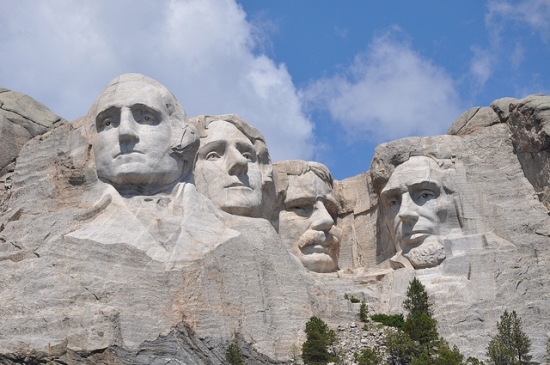Do you know what’s marvelous about the digital age? You can plunge into the past while lounging on your couch!
That’s right; you can embark on a historical exploration without budging from your living room. So put that write my essay no plagiarism search on hold because you’re about to travel back in time to key events that every student should know inside and out.
What Makes These Events So Key?
Before we set off, let’s clarify why these events are groundbreaking. They offer insights into our collective past and the factors that have formed our world. Understanding them can unlock a new perspective on the present and perhaps even the future.
So buckle up, put aside your assignment writing service order for a moment, and let’s journey back in time.
The Fall of the Roman Empire (476 AD)
The fall of the Western Roman Empire was a gradual process. Yet, it’s conventionally dated to 476 AD, when Romulus Augustulus, the last Roman emperor in the West, was overthrown by a Germanic chieftain, Odoacer.
The fall marked the end of 1,200 years of continuous Roman rule and the beginning of the Middle Ages in Europe. The decline is attributed to multiple causes, for instance:
- military threats from the outside;
- economic instability;
- social decay from within.
The Crusades (1096-1291 AD)
The Crusades were a series of religious wars sanctioned by the Latin Church during the High Middle Ages and Late Middle Ages. The goal was to reclaim Jerusalem and other sacred sites in the Middle East from Muslim rule.
The Crusades had significant political and economic repercussions, including the growth of trade and cities in Europe and the strengthening of monarchies.
The Renaissance (14th-17th Century)
Following the Middle Ages, this period inspired profound developments in virtually all aspects of society. In particular, there was a renewed interest in classical learning and the humanist ideals of ancient Greece and Rome. All of it led to significant advancements in art, science, and intellectual thought.
The Industrial Revolution (1760-1840)
The Industrial Revolution marked a major shift in human history. Traditional agrarian societies in Europe and America became more industrial and urban. New manufacturing processes and machines, including the steam engine, significantly boosted production capacity.
The Industrial Revolution also resulted in important social changes:
- urbanization;
- a growing middle class;
- new views on work and wealth.
The American Revolution (1775-1783)
The American Revolution was a war of American colonies against British rule. In response to increased taxation and lack of representation in the British Parliament, these colonies formed the United States of America.
The ideals introduced during this period, such as liberty and democracy, still influence American society and other democracies around the world.
The French Revolution (1789-1799)
The French Revolution is a pivotal period in the history of France, Europe, and Western civilization. It marked the collapse of the Bourbon Monarchy and the rise of radical political factions. Eventually, it led to the rise of Napoleon Bonaparte.
World War I (1914-1918)
World War I, also known as the Great War, was a global conflict mainly fought between the Allies (France, Russia, and the United Kingdom) and the Central Powers (Germany, Austria-Hungary, and Turkey).
The war resulted in the deaths of over 16 million people, making it one of the deadliest conflicts in human history. The war and its aftermath also led to revolutions in many of the nations involved and the beginning of the League of Nations.
The Great Depression (1929-1933)
The Great Depression was the most severe worldwide recession. It started in the United States following a major fall in stock prices and quickly spread globally.
Unemployment and poverty soared, leading to the rise of the welfare state and various populist movements.
World War II (1939-1945)
World War II was a global war between the Allies and the Axis Powers. More than 100 million people from over 30 countries were affected by it.
This war led to the formation of the United Nations. Also, a new world order marked the struggle between the United States and the USSR, setting the stage for the Cold War.
The Civil Rights Movement (1954-1968)
The Civil Rights Movement in the US aimed to fight racial discrimination and segregation.
Landmark legislation, including the Civil Rights Act of 1964, the Voting Rights Act of 1965, and the Fair Housing Act of 1968, were passed during this period. In its aftermath, the Civil Rights Movement transformed the nature of American society.
Now, as a keen student (or assignment writer), you may notice that these events are not listed in isolation. Instead, they are intrinsically linked. Let’s take a closer look at these connections:
- The fall of the Roman Empire gave rise to the Middle Ages, out of which emerged the Crusades.
- The Crusades significantly influenced the Renaissance.
- The Renaissance set the stage for the Enlightenment, which inspired the American and French Revolutions.
- These revolutions laid the groundwork for World War I and the Great Depression.
- The Great Depression was a significant factor in the outbreak of World War II.
- World War II, in turn, significantly influenced the Civil Rights Movement.
To fully comprehend the complexity of history, it is crucial to see it as a network of interrelated events, not just isolated incidents. You don’t necessarily need the best assignment services to understand that.
So, What’s Next?
Armed with this knowledge, you’re all set to explore these key historical events on your own or with the help of your history teacher. Consider this a launchpad for a more in-depth study of these events and their impacts.
Knowledge of these key events can help shape your understanding of our present-day world and how we got here.
So, remember: you’re not just learning about the past. You’re discovering how we, as a civilization, have come to where we are today. Enjoy your journey through time!





Comments powered by CComment